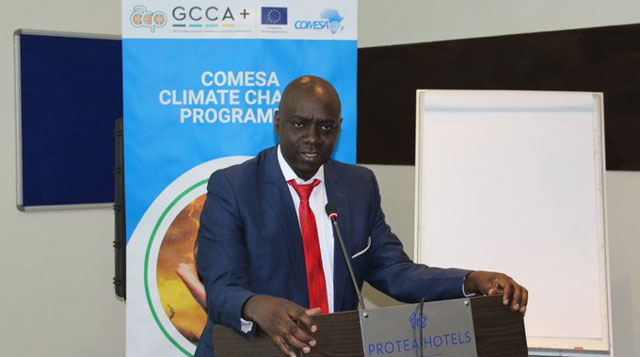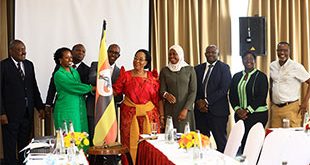
Kampala, Uganda | JULIUS BUSINGE | The Common Market for Eastern and Southern Africa secretariat will hold a two-day training workshop to build capacity for member states in what it is calling ‘target indicator tracking and implementation’ of the Transparency Clause of the 2015 Paris Agreement on Climate Change, according to a July 28 media release.
This is part of the capacity building support COMESA offers to its member states. The workshop will take place in Harare, Zimbabwe on July 30 – 31, 2019.
According to the release, all COMESA member states are fully engaged in the on-going discussions and negotiations to find a lasting and sustainable solution to the challenge of climate change.
They have ratified the Paris Agreement of 2015 and submitted very ambitious Nationally Determined Contributions (NDCs) given their circumstances.
The transparency provisions of the Paris Agreement require developing countries to regularly monitor, analyse, and report their national GHG emissions and removals, provide information necessary to track progress towards achieving their nationally determined contributions, provide information related to climate change adaptation and mitigation and to provide information on financial, technology transfer and capacity building support needed and received.
In this line, COMESA is supporting its member states to enhance their capacity in NDC implementation. It is envisaged that with adequate capacity, COMESA member states will effectively monitor, track and report the progress achieved in implementing their NDCs. This is essential in meeting the requirements of article 13 of the Paris Agreement.
The NDC target indicator tracking training will specifically focus on transparency of the actions and reporting on the Paris Agreement; unpacking and interpreting the implications of the specific reporting guidelines from the preparations for the implementation of the Paris Agreement, the status of NDC implementation, purpose of tracking progress of polices and actions, approaches to tracking progress of policies and actions and NDC financing and the role of the private sector.
At least17 member states namely Burundi, Comoros, Djibouti, D.R Congo, Eritrea, Ethiopia, Eswatini, Kenya, Madagascar, Malawi, Mauritius, Rwanda, Seychelles, Sudan, Uganda, Zambia and Zimbabwe will participate.
 The Independent Uganda: You get the Truth we Pay the Price
The Independent Uganda: You get the Truth we Pay the Price



